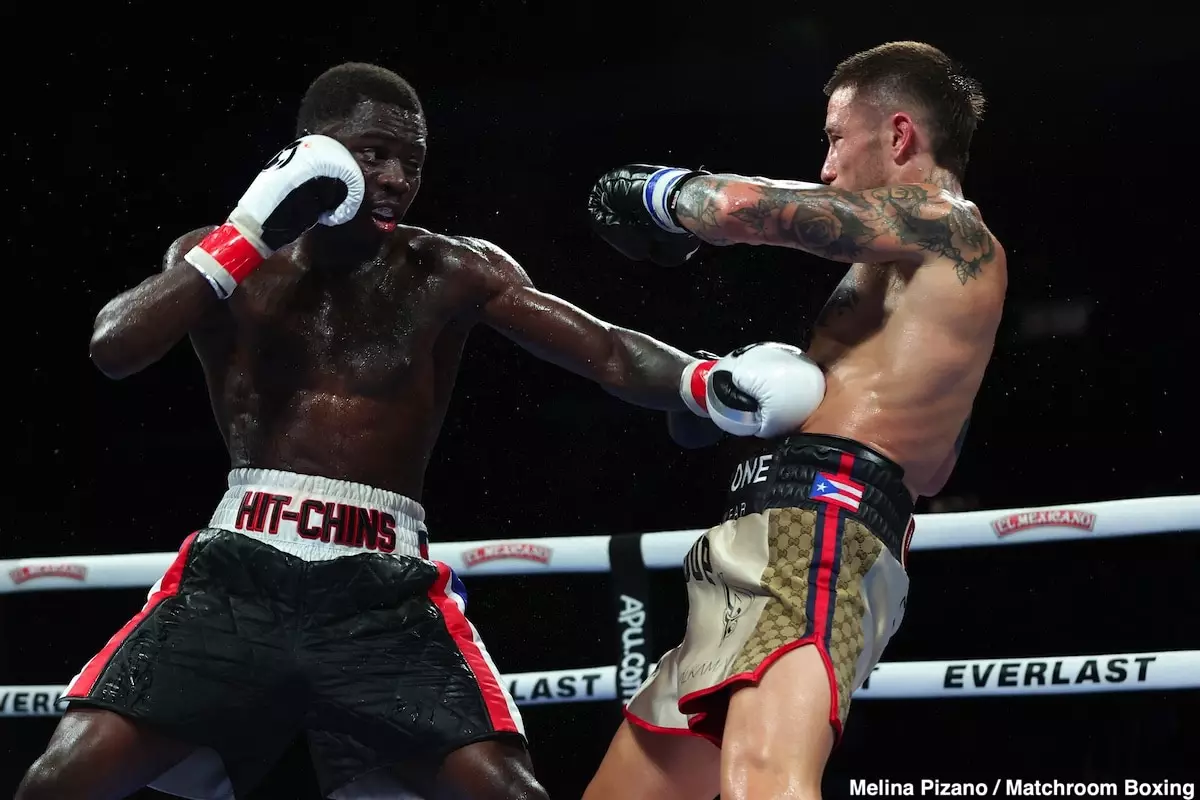The boxing world experienced a tumultuous evening recently, marked by a significant bout that has ignited debate among fans and experts alike. The contest, which took place in Puerto Rico, featured Richardson Hitchins of Brooklyn facing off against Liam Paro for the IBF 140-pound title. Hitchins emerged victorious, claiming the championship with a split decision that has stirred controversy, particularly concerning one judge’s scorecard that many have deemed unfathomable.
Hitchins’ victory was set against a backdrop of intense competition and palpable tension. The fight unfolded over 12 rounds, with the judges’ scores revealing a split that reflected diverging views on the action inside the ring. Hitchins won by a score of 116-112 from two judges, while the third, Nelson Vazquez, inexplicably favored Paro with a score of 117-111. This discrepancy has led to rampant criticism and calls for accountability regarding the scoring of professional boxing matches.
From the outset, Paro seemed to seize control, showcasing his skills and establishing a solid lead in the initial rounds. His southpaw stance and quick jabs set the tone, allowing him to dominate the early portion of the fight. However, Hitchins, spurred on by urgent instructions from his corner, mounted an impressive comeback in the middle rounds, effectively nullifying Paro’s early advantages. By round five, it was evident that both combatants were equally committed, as blood began to flow from both fighters’ brows, elevating the stakes of the contest.
Hitchins began to capitalize on his well-timed jab, which proved instrumental in turning the fight in his favor. Throughout the later rounds, he outlanded Paro, who struggled to assert his will. The disparity in effectiveness between the two fighters became more pronounced, leading most observers to believe that Hitchins’ performance merited the win.
Despite the clarity of Hitchins’ victory in the eyes of many, the results sparked immediate backlash, particularly due to one judge’s shocking 117-111 score in favor of Paro. Prominent commentators and former fighters took to social media, expressing their disbelief and disappointment. DAZN commentator Corey Erdman called the score “unfathomable”, while co-commentator Sergio Mora demanded accountability, suggesting punishment was in order for such egregious scoring.
In the wake of the controversy, there has been a broader discussion about the credibility of boxing judges. This incident exemplifies a troubling pattern in professional boxing where questionable scoring can overshadow legitimate athletic achievements. Writer Francisco A. Salazar condemned the scorecard and suggested that significant actions must be taken against judges who submit such puzzling assessments.
A notable voice in the boxing arena, Shakur Stevenson, also chimed in, emphasizing that one judge’s decision could have far-reaching implications on athletes’ careers and reputations. Stevenson articulated a feeling shared by many: that accountability must be upheld to sustain the integrity of the sport.
This occurrence is hardly an isolated incident; it falls in line with a series of contentious scorecards that have left boxing fans and insiders frustrated. Historical parallels, like the criticized 114-114 scorecard from C.J. Ross during the Floyd Mayweather-Canelo Alvarez fight, suggest a systemic issue that persists within the judging panel in boxing.
The implications of such scorecards extend beyond a single match and affect the sport’s standing in the eyes of fans and potential new viewers. Questionable decisions can deter investment, undermine the legitimacy of championships, and ultimately breed distrust in an organization that should serve as the backbone of professional sports.
As the boxing community grapples with the fallout from this latest round of controversy, it becomes increasingly clear that reforms are necessary. To preserve the credibility of the sport, the criteria and training for judges must be scrutinized. Various stakeholders, from promoters to athletic commissions, need to unify in addressing this challenge to ensure that fairness and transparency are at the forefront of boxing matches.
While Richardson Hitchins rightfully claims his title, the shadows cast by the judging controversy threaten to overshadow his achievement. The boxing community must advocate for meaningful change to protect the sport’s integrity and rebuild trust among its fans and participants. Without a corrective course of action, instances of unjust judging will persist, damaging the very fabric of boxing.

